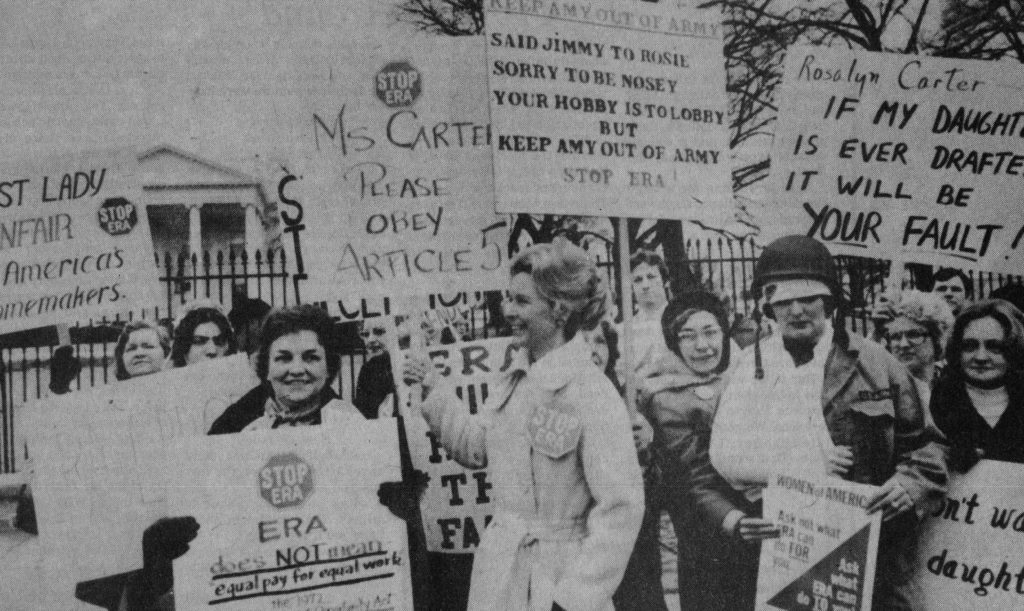Mrs. America’s Episode Six paints a dismal picture of one of America’s greatest women. Phyllis Schlafly’s “self-serving ambitions” become hardened by ruthlessness in her new alliance with Lottie Beth Hobbs. This fabrication is Hollywood’s way of unjustly slandering a remarkable woman.
In the episode, Phyllis’s visit to Miss Hobbs is shown as uncomfortable because of Miss Hobbs’ southern Christian roots and unique decor. Surrounded by taxidermy, Miss Hobbs is characterized as a hunting fanatic waving the banner of Christianity. The suggestion of Christian hypocrisy begins as Hollywood misplaces Nelly Gray’s words for Hobbs’, “We use the rose to honor the martyrdom of the unborn. You know what they do in abortion? They take the lovely baby from its natural habitat and they rip it out. And they throw it away.”
This dramatic line is not only taken out of context, but it is used to portray Hobbs as a hypocrite as if to say, “What woman would prioritize saving babies when she believes in killing animals?” Hollywood suggests that there is a militant ruthlessness in the STOP ERA women, which is non-existent in feminist women.
Later in the episode, Schlafly’s character takes a darker turn as she kills an innocent deer up close and personal. This portrayal of deer hunting is not only incorrect, it suggests Schlafly is a heartless woman willing to fight abortion only for her own political advancement.
These suggestive scenes are ridiculous and unfounded. Phyllis did not need to vent her “emotional frustrations” with violence. Even years after the Equal Rights Amendment fight, she gracefully explained her positions on openly hostile college campuses, like she did at Wellesley College in 2003.
Phyllis was not heartless as Hollywood suggests by having her coldly shoot a deer and dismiss character Pamela’s abusive marriage. She believed women and men have the right to make their own choices.
Phyllis recognized that the ERA would infringe on the choice of women to stay at home and raise their children. She knew the ERA would double the workload of women at home or in the paid workforce. Phyllis believed women should have the right to decide to be a housewife, a working woman, or some combination of the two, but she did not want women to be forced to juggle both. Her heartfelt friendship with many women, including Lottie Beth Hobbs, verifies Phyllis’s compassionate and selfless nature.

